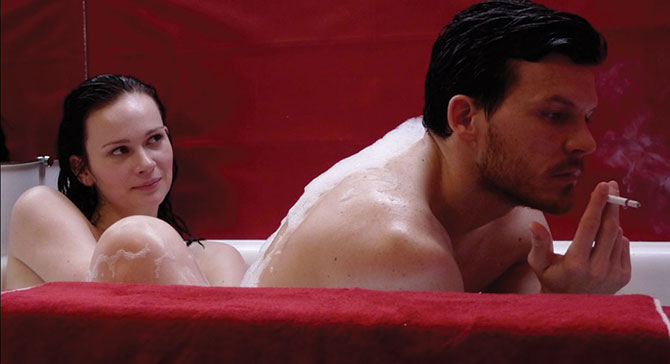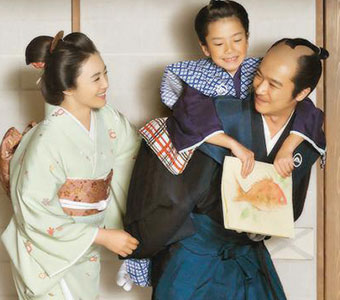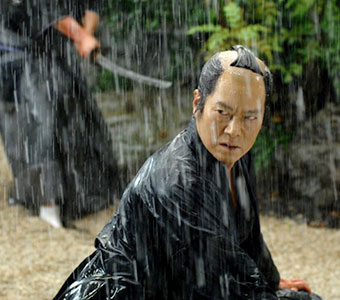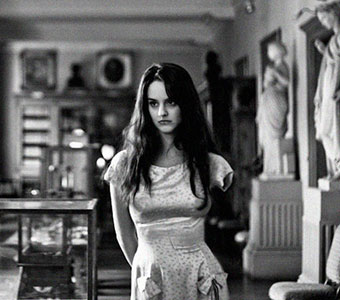The 34th Annual Montreal World Film Festival
by M. Faust

As I do every year at this time, I come before you with a heavy heart to talk about some of the films I saw at the Montreal World Film Festival. Why so glum? It’s not that the films aren’t good—in fact, I enjoyed myself more this year than I have at any WFF since early in the decade. It’s certainly heartening to be reminded that so much quality cinema continues to be made around the world at a time when it seems that special effects movies for audiences under the age of 24 are all that Hollywood is interested in making.
But it’s depressing to realize how few of these films I can recommend to you in the hope that you’ll ever have any chance to see them. Montreal is not a festival where films come to be discovered by North American distributors, or premiered prior to their release, a la Toronto. I enjoy going to Montreal (which I’ve been doing since 1995) because it gives me a chance to discover new films that give me a perspective on life in other countries.
Still, there’s always DVD. So in the hopes that my two cents may help spur some DVD distributor to take the chance that the “indie” studios won’t in getting these movies to American viewers, here are some of the films I most enjoyed:




Asian filmmaking has gotten a bad name in the last decade as it has become synonymous in the minds of many with over-the-top horror and action fare. So I was especially pleased with a handful of films, two Japanese and two Chinese, that hewed to more classic genres. Sword of Desperation (Hisshiken Torisashi) was adapted from a story by Shuhei Fujisawa, whose work was also the basis for The Twilight Samurai and its sequel The Hidden Blade. This Edo period tale of a court swordsman whose rehabilitation following an assassination masks political intrigue culminates with a swordfight that is all the more powerful for the relative serenity of the story that precedes it. Beautiful to look at on a big screen, it’s a measured but not slow film that is absorbing and finally exhilarating.
Less violent was Abacus and Sword (Bushi No Kakeibo), another Japanese historical movie from the end of the Edo era but with a wholly different protagonist: a conscientious accountant who uncovers corruption in the Kaga Domain during a time of famine. It sounds like a parody, but while it occasionally pokes gentle fun at the idea of a hero armed with an abacus, it makes for a surprisingly engaging story.
There’s probably a better chance that Confucius will get a North American release, given that it features Chow Yun Fat in the title role of the Chinese philosopher who lived in the fifth century BC. You may be as surprised as I to learn that Confucius made his career as a military adviser, albeit one who specialized in finding bloodless solutions, before being exiled and becoming the sage whose name lives on. This epic production may have substandard special effects by American standards, but it’s history writ large and carried by Chow’s typically charismatic performance.
I’m a sucker for movies filmed in Mongolia, admittedly an addiction I don’t have to worry about taking over my life: Part of the appeal is precisely that so few films are made in this untouched region of China. Blue Knight is a story of tension between generations, as a father who tends sheep like his ancestors before him did spurns his son’s desire to engage with the modern world. It’s a workably sentimental story that serves to couch the ethnographic pleasure of seeing how people live in grasslands where the nearest neighbor is two day’s ride away.
Moving westward, one of the films I most enjoyed came from Italian filmmaker Claudio Fragasso, who would probably not care to be remembered as the screenwriter of such 1980s Eurosploitation movies as Monster Dog and the infamous Troll 2. That’s not to say that Le Ultime 56 Ore (The Last 56 Hours) resides on a much higher artistic plain: This story of a band of soldiers, dying of exposure to depleted uranium used in NATO ammunition while serving in Kosovo, who try to get the world’s attention for their plight, could very easily be remade next week with Sylvester Stallone and Bruce Willis. (In fact, the leads look so much like those two that hiring them to dub the film into English would be sufficient.) But the movie is made with a brio that is sorely lacking in most mass-market action film. And if the story is at times shamelessly manipulative (especially in the first reel), it’s in the service of a good cause: As the closing line of dialogue points out, “The only market that knows no recession is the arms market.”
Another film that recalls transgressive cinema of the 1980s, Le Sentiment De La Chair (Sentiment of the Flesh) seems so much like early David Cronenberg that you wonder why he never thought of the idea himself. This new take on l’amour fou also owes debts to Roman Polanski and Marco Ferreri, with whom debuting filmmaker Roberto Garzelli apprenticed in the early 1990s. At a medical teaching college, Héléna, a student in anatomical drawing, and Benoît, a young radiologist, fall in love and discover a shared passion, a fascination with knowing every intimacy of the human body. Given that one of this pair has access to medical technology, you can see pretty easily where this is heading into disturbing territory. Oddly, though the climax will have audiences who should have left sooner puking in the aisles, it seems reluctant to take a final step, though that’s probably just as well. The film works best as a subtle satire of the notion of “absolute intimacy,” with a sly penchant for giving new meaning to romantic clichés: “No man has ever looked at me like you have” and “I don’t want to have any secrets from you” take on whole new meanings here.
A more obvious attempt at creating a cult film, The Orphan Girl Without an Arm (L’orpheline avec en plus un bras en moins) was adapted from a script by Roland Torpor, the French surrealist best known in the US for his work on the films Fantastic Planet, Marquis, and Roman Polanski’s The Tenant (adapted from Torpor’s novel). Director Jacques Richard also seemed to have Luis Bunuel in mind while filming this story of a one-armed sex kitten who is rescued from an orphanage at the age of 19 by an outwardly respectable magistrate. Despite the glowing black-and-white cinematography and the presence of Jean-Pierre Jeunet regular Dominique Pinon in a supporting role, this never strikes the naughty air it seems to be aiming for.
The film that most stuck in my mind was an American documentary, The Singularity Is Near, adapted by futurist Ray Kurzweil from his book of the same name. The title refers to the point at which human intelligence will merge with artificial intelligence to become limitless. If you’ve read any of Kurzweil’s books or heard him interviewed on NPR, you’ll know that he has an enormous vision for the possibilities (and potential consequences) of this that he is able to spit out to dizzying effect—one reviewer aptly called him “technology’s most credibly hyperbolic optimist.” Watching it, you inevitably come to ask what is the meaning of human existence when it grasps the ability to overcome all limits, a question that may stop being theoretical in our lifetimes.
blog comments powered by Disqus|
Issue Navigation> Issue Index > v9n36 (week of Thursday, September 9) > The 34th Annual Montreal World Film Festival This Week's Issue • Artvoice Daily • Artvoice TV • Events Calendar • Classifieds |









 Current Issue
Current Issue